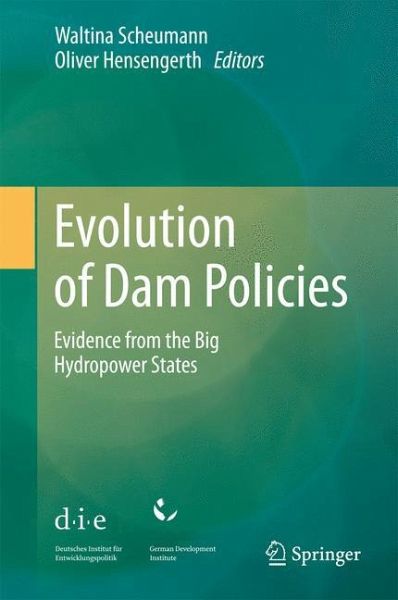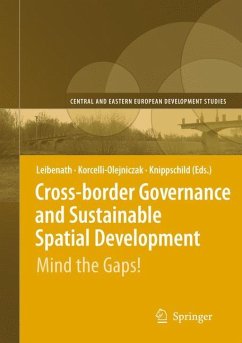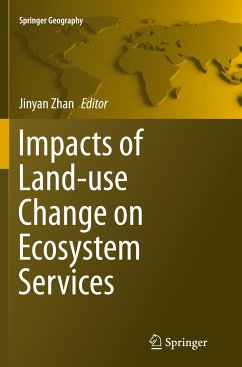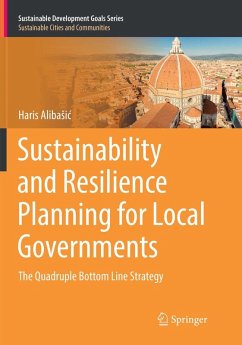
Evolution of Dam Policies
Evidence from the Big Hydropower States
Herausgegeben: Scheumann, Waltina; Hensengerth, Oliver

PAYBACK Punkte
57 °P sammeln!
The World Commission on Dams (WCD) report (2000) "Dams and Development: A New Framework for Decision-Making" set a landmark in the ongoing controversy over large dams. Now that more than ten years have passed, one has to realize that the WCD norms matter. However, their real chance of becoming implemented relies on whether their core values, strategic priorities and guidelines are accepted by national decision-makers and are translated into official policies and practices. The book's major concern is whether the big hydropower states have improved their standards for environment and resettleme...
The World Commission on Dams (WCD) report (2000) "Dams and Development: A New Framework for Decision-Making" set a landmark in the ongoing controversy over large dams. Now that more than ten years have passed, one has to realize that the WCD norms matter. However, their real chance of becoming implemented relies on whether their core values, strategic priorities and guidelines are accepted by national decision-makers and are translated into official policies and practices. The book's major concern is whether the big hydropower states have improved their standards for environment and resettlement, and whether international standards are applied or exist only on paper.
The introductory and synthesis chapters present the methodological approach and discuss the findings. Other chapters analyze changes in dam policies in the big hydropower states Brazil, China, India and Turkey; the role of non-governmental organizations in advocating against the Turkish Ilisu Dam project on the Tigris River; the strategies of International Rivers and World Wildlife Fund for Nature in the global hydropower game; the policies of the German government and its positioning in the dam debate, and the engagement of Chinese actors in building the Bui Dam (Ghana) and the Kamchay Dam (Cambodia).
The introductory and synthesis chapters present the methodological approach and discuss the findings. Other chapters analyze changes in dam policies in the big hydropower states Brazil, China, India and Turkey; the role of non-governmental organizations in advocating against the Turkish Ilisu Dam project on the Tigris River; the strategies of International Rivers and World Wildlife Fund for Nature in the global hydropower game; the policies of the German government and its positioning in the dam debate, and the engagement of Chinese actors in building the Bui Dam (Ghana) and the Kamchay Dam (Cambodia).














